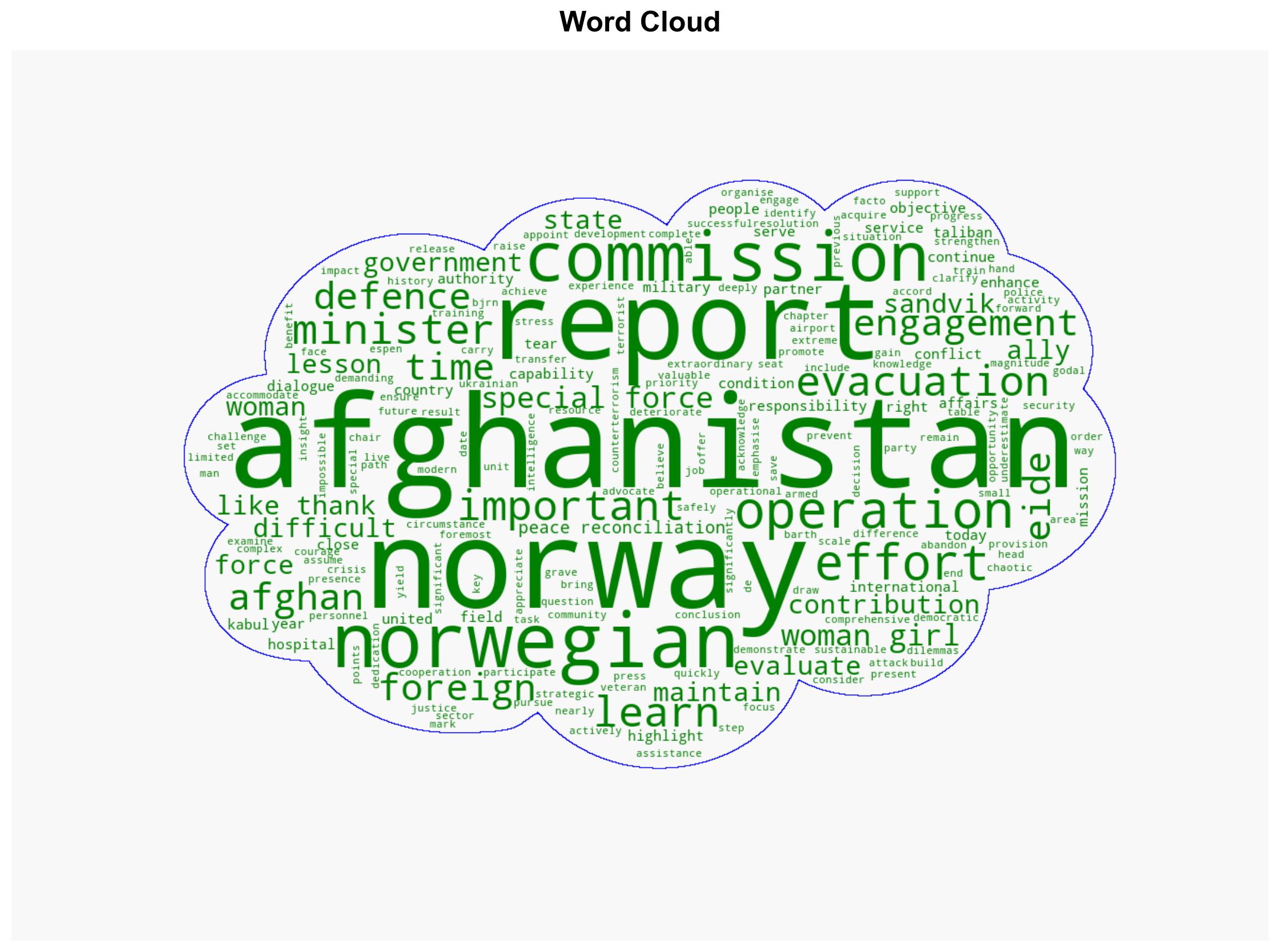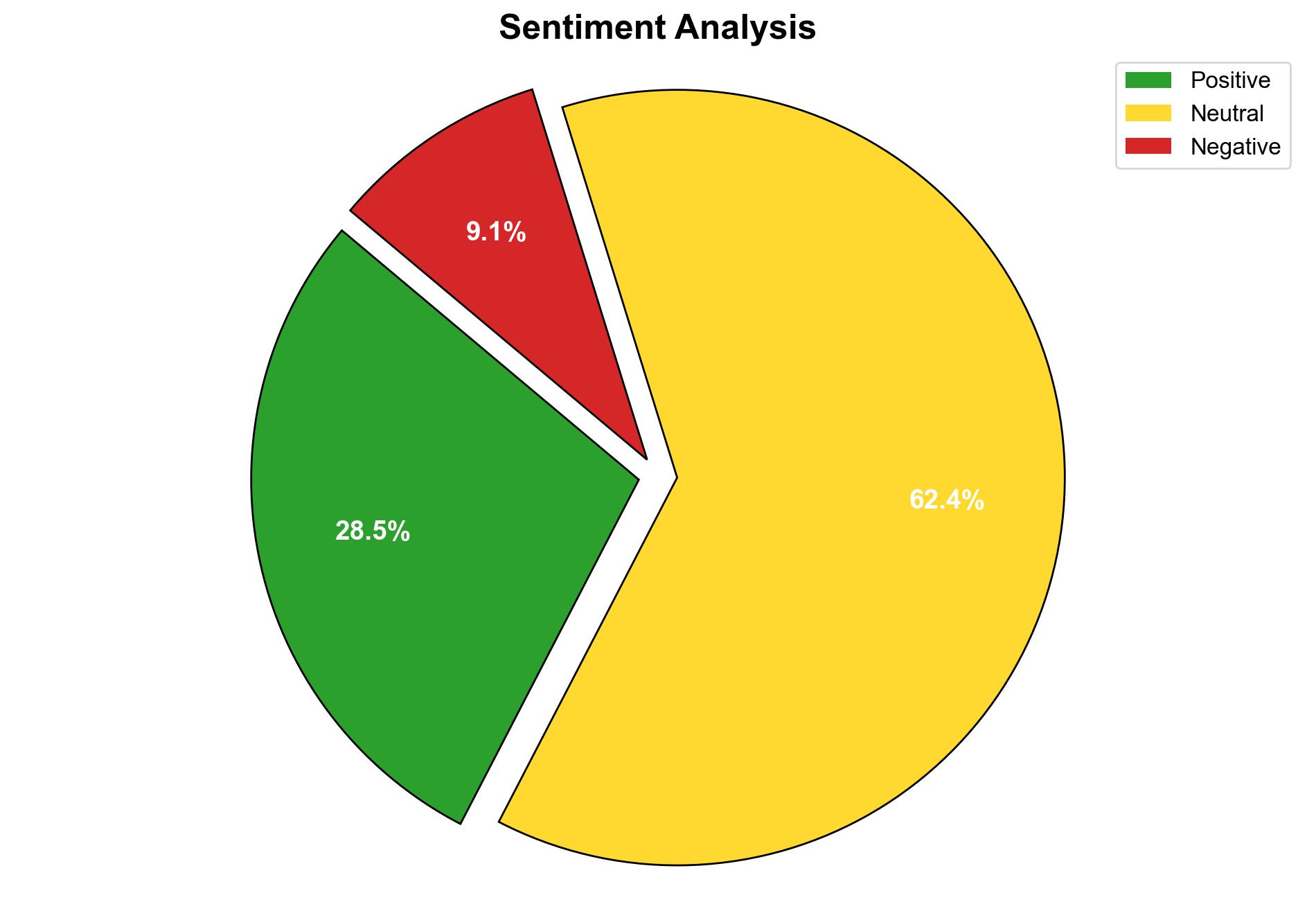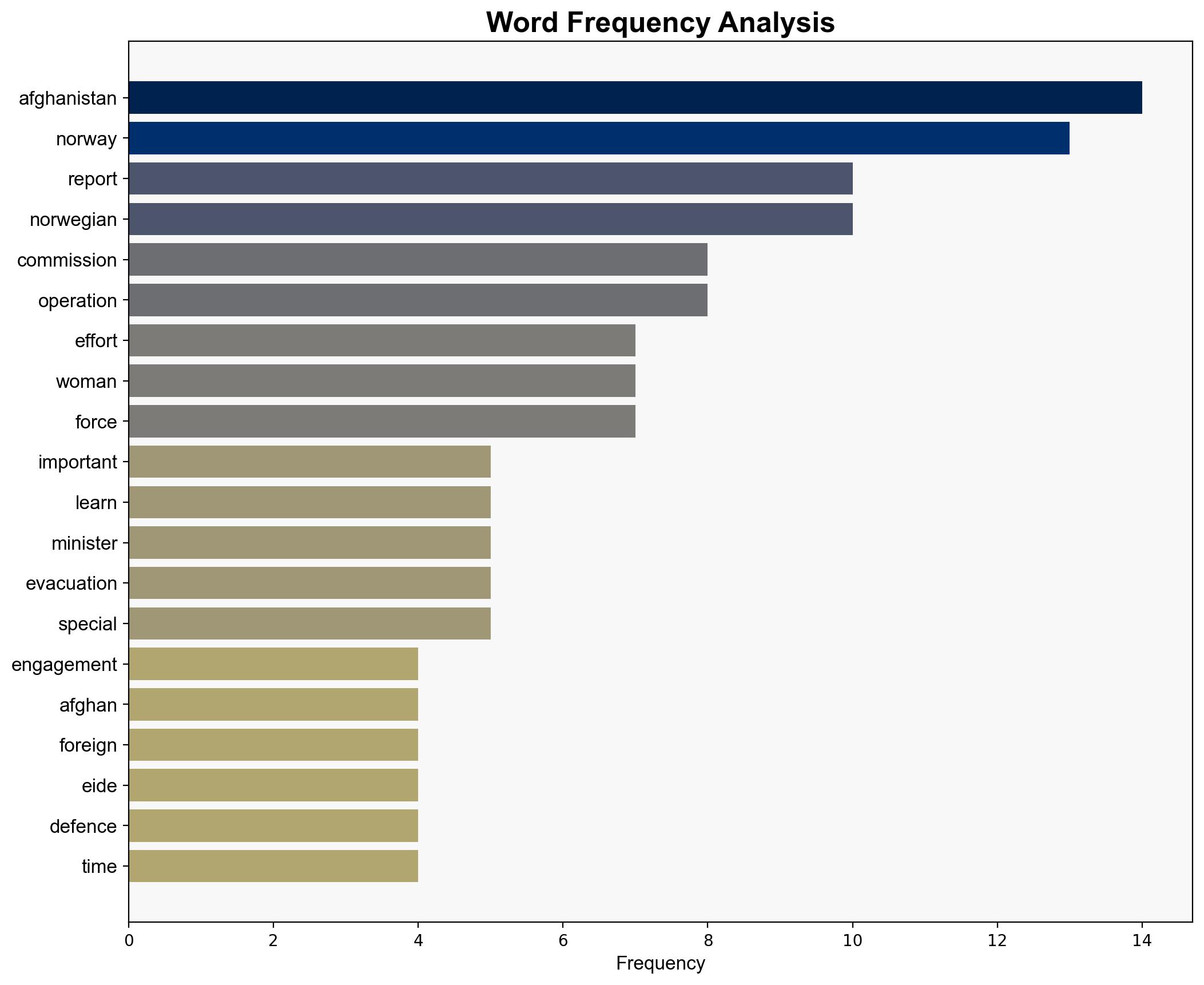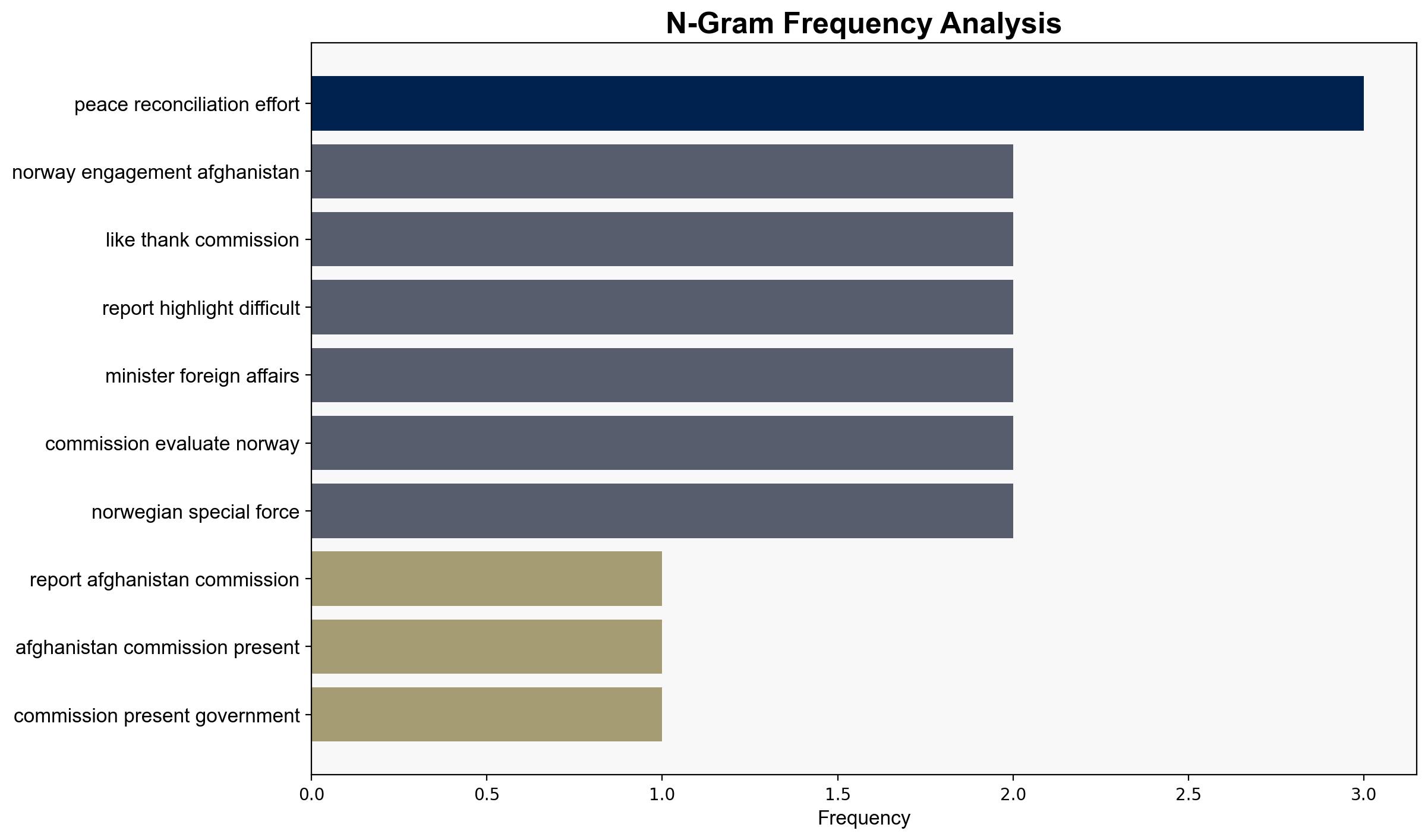Report of the Afghanistan Commission presented – Globalsecurity.org
Published on: 2025-11-11
AI-powered OSINT brief from verified open sources. Automated NLP signal extraction with human verification. See our Methodology and Why WorldWideWatchers.
Intelligence Report: Report of the Afghanistan Commission presented – Globalsecurity.org
1. BLUF (Bottom Line Up Front)
The strategic judgment is that Norway’s engagement in Afghanistan, while limited in scale, has had a significant impact on both counter-terrorism capabilities and humanitarian efforts. The most supported hypothesis is that Norway’s continued focus on counter-terrorism and women’s rights advocacy will yield long-term benefits for both Norwegian and global security. Confidence Level: Moderate. Recommended action includes maintaining and enhancing Norway’s counter-terrorism capabilities and advocacy for women’s rights in Afghanistan.
2. Competing Hypotheses
Hypothesis 1: Norway’s engagement in Afghanistan has primarily enhanced its counter-terrorism capabilities, which will continue to benefit national and allied security efforts.
Hypothesis 2: Norway’s efforts in Afghanistan have been more impactful in the humanitarian domain, particularly in advocating for women’s rights, which will have long-term socio-political benefits.
The evidence supports Hypothesis 1 more strongly due to the emphasis on counter-terrorism operations and the transfer of knowledge to other defense initiatives, such as training Ukrainian forces. However, the humanitarian aspect, particularly women’s rights, remains a significant focus, supporting Hypothesis 2.
3. Key Assumptions and Red Flags
Assumptions: Norway’s military and humanitarian efforts are assumed to have strategic impacts despite their small scale. The assumption is that these efforts are sustainable and will continue to receive political and public support.
Red Flags: Potential overestimation of Norway’s influence in Afghanistan. The deteriorating situation for women and girls could undermine Norway’s humanitarian objectives.
Deception Indicators: The report may understate challenges or overstate successes to align with political narratives.
4. Implications and Strategic Risks
Political Risks: Norway’s continued engagement with the Taliban could face domestic and international criticism, affecting its diplomatic standing.
Cyber Risks: Increased involvement in counter-terrorism could make Norway a target for cyber-attacks from terrorist groups.
Economic Risks: Prolonged engagement may strain financial resources, especially if the situation in Afghanistan deteriorates further.
Informational Risks: Miscommunication or misinformation about Norway’s role could damage its international reputation.
5. Recommendations and Outlook
- Actionable Steps: Enhance intelligence-sharing with allies, increase support for women’s rights organizations in Afghanistan, and ensure robust cybersecurity measures to protect against potential retaliatory attacks.
- Best Scenario: Norway’s efforts lead to improved security and human rights conditions in Afghanistan, bolstering its international standing.
- Worst Scenario: Norway’s involvement leads to increased security threats and deteriorating conditions for women, straining resources and political capital.
- Most-likely Scenario: Norway continues to play a supportive role in international efforts, with moderate success in both counter-terrorism and humanitarian domains.
6. Key Individuals and Entities
Espen Barth Eide: Minister of Foreign Affairs, involved in appointing the commission.
Bjørn Tore Godal: Chair of the commission, former Minister of Defence and Foreign Affairs.
Tear Sandvik: Minister of Defence, highlighted the strategic impact of Norway’s contributions.
7. Thematic Tags
Counter-Terrorism, Women’s Rights, International Relations, Humanitarian Efforts
Structured Analytic Techniques Applied
- ACH 2.0: Reconstruct likely threat actor intentions via hypothesis testing and structured refutation.
- Indicators Development: Track radicalization signals and propaganda patterns to anticipate operational planning.
- Narrative Pattern Analysis: Analyze spread/adaptation of ideological narratives for recruitment/incitement signals.
Explore more:
Counter-Terrorism Briefs ·
Daily Summary ·
Methodology





